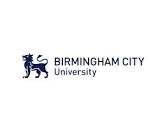Digital transformation is an innovative msc degree course designed for those who want to pursue careers as managers and leaders in implementing technology-based information systems solutions and managing technological transformation within organisations.

Digital transformation is an innovative msc degree course designed for those who want to pursue careers as managers and leaders in implementing technology-based information systems solutions and managing technological transformation within organisations.
What's covered in this course?
You will learn:
Graduates from the course will be equipped for careers in a range of sought-after positions including: Junior Consultant, Project Manager, Change Analyst, Digital Transformation – Business Analyst, Business Intelligence Analyst and Digital Transformation Leader.
Tailor your degree
Why Choose Us?
Essential Requirements
Additional information for EU/International students
Essential
Module
In order to complete this course a student must successfully complete all the following CORE modules (totalling 180 credits):
Our teaching philosophy revolves around you both ‘learning by doing’ and also transferring acquired knowledge to others. Activities will be conducted both individually and in teams, with tutors providing leadership and mentoring aimed at supporting your transition into independent learners. In this partnership, we will be encouraging you to become proactive, so that you can develop your confidence to undertake a range of progressively complex and challenging tasks.
We expect you to attend all teaching sessions, as well as to read and prepare before these sessions. Good preparation will enable you to get the most from your contact time and will help you become an autonomous learner. Advanced preparation is also a critical skill which you must develop if you wish to succeed in business or professional practice. Teaching sessions will include lectures and small group interactive seminars.
You will be assessed in a number of different ways, including coursework, patchwork assessment, examinations (seen and unseen, open and closed-book), presentations, practical assignments, vivas, online forums, podcasts and project work.
Professional Placement option
Enhancing your employability skills
Birmingham City University programmes aim to provide graduates with a set of attributes which prepare them for their future careers. The BCU Graduate:
The University has introduced the Birmingham City University Graduate+ programme, which is an extracurricular awards framework that is designed to augment the subject-based skills that you develop through your programme with broader employability skills, enhancing your employment options when you leave university.
The programme will help you with crafting your CV, personal statements, covering letters and presentations, and will also help you seek part-time work experience and voluntary placements.
Our earlyhistory can be traced back to the five individual colleges which would be brought together as The City of Birmingham Polytechnic in 1971.
Birmingham College of Art has its roots back in October 1843, when the Birmingham Society of Artists opened the Birmingham Government School of Design. I
n 1884 the School evolved into Birmingham College of Art, moving to a beautiful purpose-built Venetian Gothic building on Margaret Street designed by John Chamberlain. Today Margaret Street, which still houses our Department of Art, is a Grade I Listed Building.
In 1888 Birmingham School of Jewellery, which was based in Ellen Street, became a branch of the College of Art. Two years later a new building was opened in Vittoria Street which has been the School's home ever since.
The School of Architecture was established within the College of Art in 1909 and won Royal Institute of British Architects (RIBA) recognition in 1923 and 1930 to become one of the UK’s major schools of architecture. On entry into the Polytechnic, the School became a leading department of the Faculty of the Built Environment.
Birmingham School of Music developed as a department of the Birmingham and Midland Institute around 1859. The first phase of the present building in Paradise Circus was opened in 1973 by HM The Queen Mother.
Birmingham College of Commerce was established in the early 20th century and became a branch of Birmingham Central Technical College (CTC) with its main teaching centre in Edmund Street.
South Birmingham Technical College opened in 1961 on Bristol Road. In the early 1970s, the College's departments moved to new buildings in Perry Barr and the South Birmingham site was later occupied by Bournville College of Further Education until 2011.
North Birmingham Technical College was created in 1966 when Aston Technical College moved to new premises at Perry Barr. New buildings for the college formed part of the University's City North Campus until 2018.
Becoming Birmingham City University
In 2007, the University changed its name to Birmingham City University and received a new logo, a reworking of the tiger crest used by the University of Central England in Birmingham, which itself originally came from the Birmingham College of Commerce, one of the Polytechnic's founder institutions.
From 2011, the University has undertaken a major investment in its estates and facilities to create a campus fit for the future. The City Centre Campus has seen three major new developments – the Parkside Building for Design and Media students opened in 2013.
The Curzon Building, which houses Business, Law and Social Science courses as well as new library, IT and student support facilities opened in 2015.
And our new music building for the Royal Birmingham Conservatoire opened in 2017. A new extension to our City South Campus to house Education, Sport and Life Science courses opened in 2018.
Our Values
BCU’s Values underpin how we work in achieving the ambitions set out in our Strategy and Priorities, and are the principles that unite the way we work together and for our students.
As the University for Birmingham, our values also reflect our relationship with the city, how we care about our community and the collaboration we use to get the best results.
Our Values are not just words on a page but actions and behaviours that can be seen, heard and felt in what we do every day
© 2025 coursetakers.com All Rights Reserved. Terms and Conditions of use | Privacy Policy